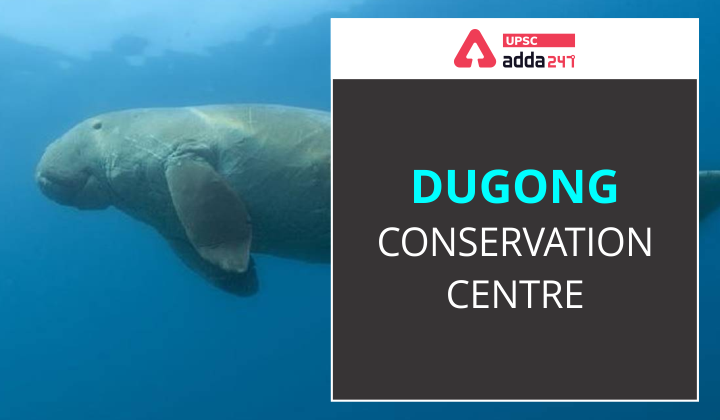Table of Contents
Relevance
- GS 3: Conservation, environmental pollution and degradation.
Context
- Recently, the Tamil Nadu government announced that a 500-sqkm dugong conservation reserve will soon be set up in the Palk Bay.
- It would be India’s first dugong reserve.

Key points
- The proposed conservation area has the highest concentration of dugongs in the country.
- The local communities have been allowed to continue their fishing activities in the traditional way. However, there is a ban on trawling and gill net
- Awareness programmes are being conducted for fishing communities and appreciation awards are given to fishermen who release dugongs that are accidentally caught.
- Though dugongs used to be previously poached for meat, now with awareness, it has completely stopped.
State Animal and State Bird of Ladakh
What are Dugongs?
- Dugongs (Dugong dugon) is a herbivorous mammal.
- They are also called the sea cow.
- They can grow upto three meters long, weigh about 300 kilograms, and live for about 65 to 70 years, grazing on seagrass and coming to the surface to breathe.
- They are found in more than 30 countries.
- In India, they are seen in the Gulf of Mannar, Gulf of Kutch, Palk Bay, and the Andaman and Nicobar Islands.
Common Survey to Count Elephants and Tigers
Why the need for conservation?
- The loss of seagrass habitats, water pollution and degradation of the coastal ecosystem due to developmental activities have made life tough for these slow-moving animals.
- Dugongs are also victims of accidental entanglement in fishing nets and collision with boats and trawlers.
- Due to these reasons, dugongs are listed as Vulnerable on the IUCN Red List of Threatened Species.
- Globally, dugongs are listed in Appendix I of the Convention on International Trade in Endangered Species of Wild Fauna and Flora (CITES).
- CITES is a treaty that prohibits the trade of the species and its parts.



 TSPSC Group 1 Question Paper 2024, Downl...
TSPSC Group 1 Question Paper 2024, Downl...
 TSPSC Group 1 Answer key 2024 Out, Downl...
TSPSC Group 1 Answer key 2024 Out, Downl...
 UPSC Prelims 2024 Question Paper, Downlo...
UPSC Prelims 2024 Question Paper, Downlo...





